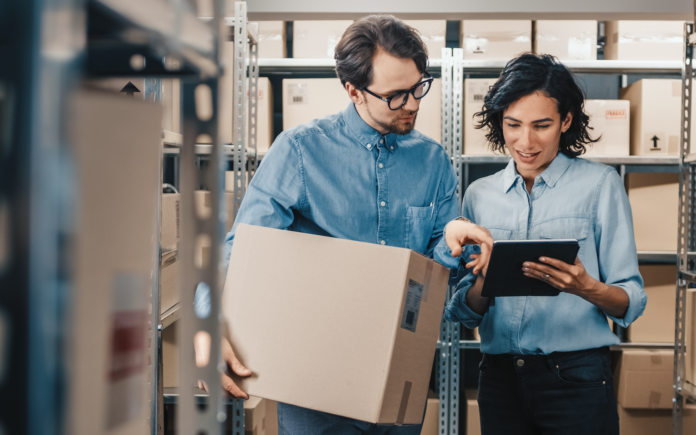A traditional wholesaler can learn a lot from Amazon’s business model, says Richard Fletcher
With my wholesale distribution hat on, Amazon is an interesting proposition – with its business division reported to be the fastest-growing in its history. This is firmly put into perspective by the fact that in 2018 alone, Amazon Business’ turnover grew by more than $50bn to £280bn.
Amazon Business is growing in the UK, and arguably the final piece of its B2B puzzle is delivery.
Once it has this cracked and it can satisfy the complex daily requirements of scheduled, consolidated and multitemperature deliveries, it will be competing side-by-side with traditional wholesalers, who inevitably will be wondering what’s hit them.
Personally, I think this day is fast approaching and the fragmented nature of traditional foodservice and retail wholesale will play right into Amazon’s hands.
But, without spending too much time putting the heebie jeebies up traditional wholesalers, I’ll summarise by saying that Amazon is already in our space, it is taking market share, and this is only the start.
The B2B ecommerce market is just too big an opportunity for Amazon to ignore. It’s a far more significant opportunity than consumer ecommerce, which has already seen it become the world’s most valuable company.
And if Jeff Bezos is to succeed with his ultimate dream of colonising Mars and saving the Earth from a humaninduced cataclysm, he needs to succeed in the B2B space first.
Despite the obvious threat, we can all learn something from Amazon when it comes to customer experience.
Nine out of 10 people in the UK buy from the giant. This means that it’s an easy transition for these people to buy from Amazon Business in the workplace. It also means the same people are comfortable working with other businesses that can offer Amazon- like services.
Amazon has unlocked a new way of doing business founded on an unrivalled ability to satisfy the needs of modern buyers. Needs we just didn’t know existed 10 years ago (and I’m not just talking about the needs of millennials and Generation Z). Today, these needs seem so obvious, but until Amazon drew our attention to them, we were all in the dark.
As a normal buyer, we have evolved to expect infinite choice, instant and seamless digital self-service, and more product information than we know what to do with.
In highlighting these new needs, Amazon has created a roadmap for traditional businesses to try and follow. It’s a strategy that puts customer experience at the centre of every decision and sets the benchmark for competing businesses.
So, what can we learn from Amazon and how does this effect your strategic goals? As a starting point, we need to offer our customers more choice. Amazon provides buyers in the UK with more than 100 million different products and it’s done this using a marketplace model.
Gone are the days when businesses must stock physical inventory and deliver their own products. Today, you can merely host transactions to be successful. Amazon – and others – are proving this model works. It’s part of the platform revolution and you should read up on it.
We need to provide customers with more, better-quality product information. Whether we are talking about memory cards, garden furniture, wine or tortillas, Amazon provides buyers with the all the information they need to make fast and accurate purchasing decisions.
It provides a significant competitive advantage. Images, videos, descriptions, technical information and, most importantly, user-generated content like reviews and FAQs all add to an engaging brand experience. And as confidence becomes more important, the emphasis on price is lessening.
We must provide customers with slick and engaging digital self-services. Amazon’s digital self-service works seamlessly across all customer touchpoints and underpins its ability to connect buyers with the products and information they require. Amazon’s buying journey is extremely convenient, personalised and totally transparent.
If we try to forget for a minute that Amazon is a growing threat, we can study its model with optimism, breaking down what makes it so successful and identifying ways for us to develop our own strategy.
Whatever we see in Amazon’s success, traditional wholesalers will do well to emulate a little bit of it in their own businesses.
This doesn’t mean we should move away from the traditional values that have supported our growth for generations, but we must not lose sight of the changing face of our modern buyers.
Richard Fletcher is the managing director of Foodservice Online








